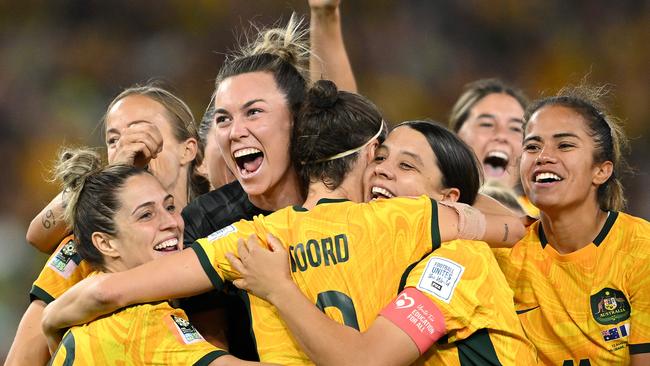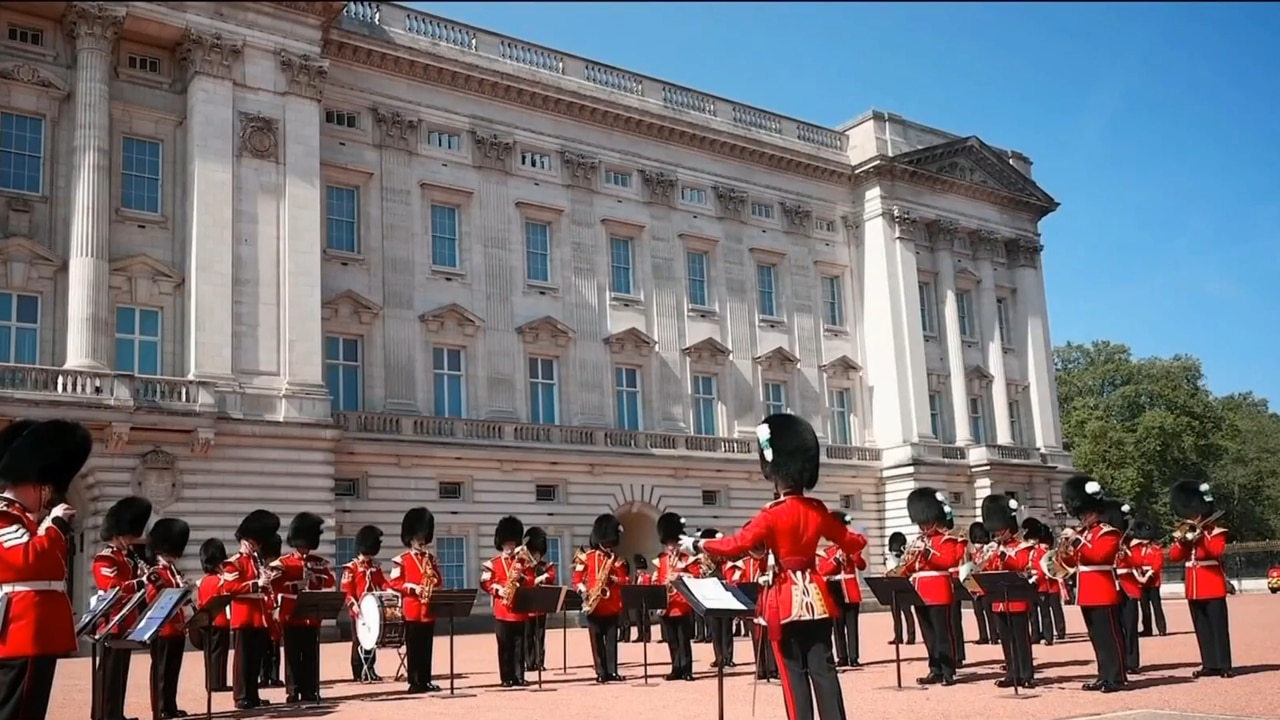
But now. The names on the tongues of girls across Australia are Kerr, Fowler, Foord, Raso – among the 23 big-hearted warriors of our national football team. This generation of Matildas will go down in immortality for what they’ve done for women’s sport in this country; how they’ve galvanised the nation.
Matildas’ matches are out-rating the big guns of men’s sport on the box – the NRL and AFL grand finals, Origin and the Ashes. These magnificent viewing numbers have huge implications for women’s sport in terms of broadcast rights, sponsorship and one day, the holy grail of equal pay.
And it’s boys, too, now talking the legendary girls’ names, wearing Matildas merch, discussing the mystery of Mary Fowler’s gloves and Sam Kerr’s calf. My 12-year-old son is glued to the Women’s World Cup games. Doesn’t think it’s weird to be watching, as a boy; it’s athleticism of the highest order, skill and strength, miracles and magic. The dance of the footwork. The mental fortitude. In this household we’ve gathered around the telly, as a family, in a way we haven’t for years. The Channel 7 commentator who expressed amazement that Katrina Gorry, a mother, could still be competitive was rightly called out. It’s important for boys as well as girls to see that mums can be Matildas, can play at the highest echelons.
Now I understand the religion of sport. Feel captured by this team, this game. Fretting and obsessing, sleepless the night before the crucial Canada clash, worrying over Sam’s calf and Mary’s concussion and whether that Swedish bloke was up to it. Football stole my life. My serenity. In the end I couldn’t bear to watch the Canada clash because I cared so much; my son gently led me to the telly when we were three-nil up. “It’s OK, mum, they’ve got this.”
The fervour of this new religion hit me at the Colombia v Germany match, the only one I could get tickets to. The atmosphere in the stadium was electric, raucous with drums and chants. There were little girls holding up placards with glittery lettering; it felt beautiful, a generational shift.
Chloe Dalton is a Rugby Sevens Olympic gold medallist who’s just written a book called Girls Don’t Play Sport, about the defiant rise of women in sport. She says the FIFA Women’s World Cup has been huge in shifting perceptions. “Sport has the ability to invade our lounge rooms and become a regular part of family conversation. When the women playing in this World Cup are shown to receive equal opportunity, respect and representation, this has the ability to shift people’s perceptions about where women belong in society.”

This winter has been the season of Sam (and Margot with her Barbie feast, and Taylor with her ticketing frenzy). The women are on their way, showing us they are economic powerhouses given half a chance. “A valued person lives in a society in which her story has a place,” Rebecca Solnit wrote. The Matildas have lately been carving a glorious chapter in their story. They’re valued in the sporting history of our nation; valued in the changing story of us. If kids rode bikes like they used to, and cards were still available at corner shops, the Tillies stars would now be flapping in the spokes. Girls, playing that ethnic round-ball thing, filling our nation’s stadiums and beating the eyeballs on the Ashes boys? Unthinkable, back in the day. How far we’ve come.








Growing up, cricket cards from the corner shop blazed the names Lillee, Marsh and Chappell and were proudly pegged to the spokes of your dragster bike. They were the players we idolised, the sporting stars of the firmanent; we talked about those fabled men in loungerooms and playgrounds. No women, in any team sport, were stars. Were generally even known. Womens’ team sports, on TV, not a thing.